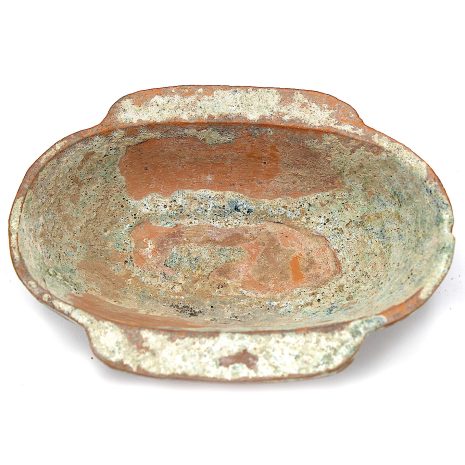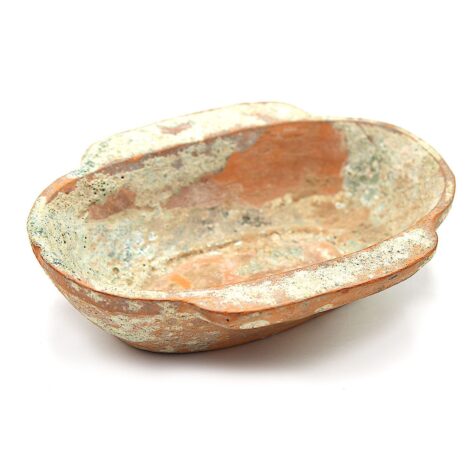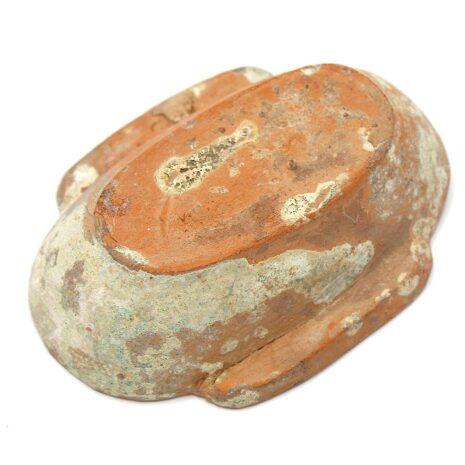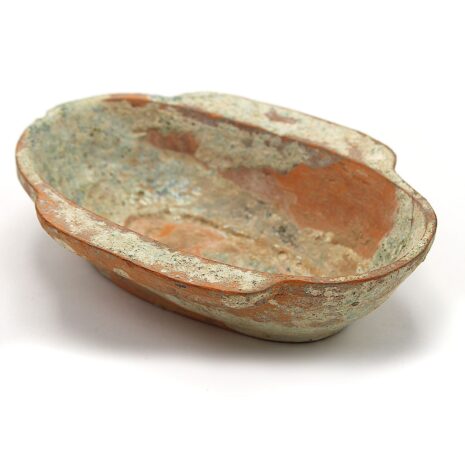Ancient Glazed Ceramic Han Wing Cup, China (1009BOH)
Original price was: $450.00.$310.00Current price is: $310.00.
H: 1.5″ W: 5.125 ” D: 3.875 ” | FREE SHIPPING WITHIN CONTINENTAL U.S.!
Used for rituals and ceremonies, lead green glazed earthenware wing cups were popular burial objects. The tomb’s humidity caused the lead to oxidize to a lustrous, prized iridescent, silver-green.
Description
Wing or ear cups (yushang), a term that describes its side flange-like additions to its ovoid body, appeared as early as the Zhou dynasty (1046-256 BCE) made in lacquer and later from a variety of materials. Lacquerware cups were used as dining vessels used for rituals and ceremonies contain fragrances, food or wine; and the side handles made it easy to grasp. Scholars believe they were used by rich and poor with the difference in the cost of materials reflecting the position and status of the family. The winged sides were to steady the cup while it floated down streams during ceremonies and aid it keep its contents. Poems and literary references to winged cups appear in early Chinese literature and the Annuls of the Han Dynasty described the inscription of emperor Wudi’s cup in 164 BCE as “May the life of the ruler of men be lengthened.” Wing cups were very popular as mingqi burial objects. Often mold made using red earthenware clay covered with a thick green glaze, the lead in the glaze and the tomb’s humidity caused a chemical reaction resulting in a lustrous, iridescent, silver-green glaze color prized by collectors, especially as it is impossible to recreate. It is in very good condition considering its age and use with considerable silver-green glazed luminous iridescence remaining.
Additional information
| Weight | 5 lbs |
|---|---|
| Dimensions | 8 × 8 × 8 in |
| Period | Ancient, Han Dynasty |
| Date | 206 BCE-220 CE |
| Materials and Technique | Ceramics |
| Dimensions (inches) | Ht: 1.5” W: 5.125” D: 3.875” |
| Dimensions (metric) | Ht: 3.81cm W: 13.02 D: 9.84cm |
| Weight | 5.6 oz |
| Condition | Very good, see description |
| Item Number | 1009BOH |
| Shipping Box Size | |
| Width | 0” to 5.9” |








